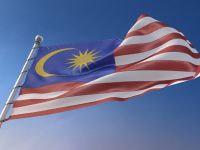A suicide bombing by Islamic militants Monday at Kashmir's state legislature is the latest incident in an upsurge of violence in the Indian-ruled state since the September 11 attacks on the United States.
Close to 100 people have been killed in the past four days in clashes or bombings linked to Islamic militants fighting to wrest control from India of its only Muslim-majority state.
Pakistan-based militant group Jaish-e-Mohammed claimed responsibility for the suicide bombing and shootout at the Srinagar legislature Monday in which some 22 people were killed.
A militant, whom the group said was a Pakistani national, drove to the building with a car laden with explosives, while several other armed members of the group entered the tightly guarded building and began firing.
The incident comes at a tense time for the militants, as both their chief defender Pakistan and arch-nemesis India have agreed to cooperate with the United States in its war on terrorism.
Washington is looking to destroy alleged terrorist bases in Afghanistan linked to dissident Saudi millionaire Osama bin Laden, who is protected by the ruling Taliban militia.
India claims that many of the Kashmir "holy warriors" fighting secular but predominantly Hindu India are Afghans or Afghan-trained and says it has intelligence reports that some militants have been summoned home by the Taliban to fight a potential US attack.
But top militant groups have denounced the Indian claims as untrue. Abu Osama, a spokesman for the leading Lashkar-e-Taiba outfit, called the allegations "anti-jihad propaganda."
And, after an initial lull in fighting immediately after the US attacks that left 5,700 people dead or missing, fighting in Kashmir has resumed with ferocity.
Forty-seven people were killed in violence Saturday and Sunday, the bulk of them Muslim militants, some of whom India said infiltrated from across the Line of Control, the de facto border that divides Kashmir between India and Pakistan.
The Himalayan territory has been the cause of two wars between India and Pakistan, both declared nuclear powers since 1998.
A Muslim insurgency that broke out in 1989 in Kashmir has killed more than 35,000 people.
Amid the tension in Pakistan and Afghanistan, Lashkar-e-Taiba warned last week that it would unleash its suicide bombers on Indian targets if New Delhi tries to take advantage of the situation to "wage a war."
The revamped regional chessboard in the wake of the US attacks has also caused political upheaval within separatist ranks.
The top separatist alliance, the All Party Hurriyat Conference, has publicly supported Pakistani President Pervez Musharraf's offer of support to the United States in its campaign against terrorism.
But Kashmiri Muslim radicals, many of them fervently anti-American, have blasted the Hurriyat's stance and called on Pakistan to resist any US moves to punish Afghanistan.
In particular, the radicals defied the Hurriyat by going ahead with a September 21 strike against Musharraf's cooperation with the United States and in solidarity with Pakistan's religious right.
The general strike was a success, shutting down much of Srinagar for the day, and the radicals used the event to call for harder-line separatist leadership -- SRINAGAR, India (AFP)
© 2001 Al Bawaba (www.albawaba.com)







